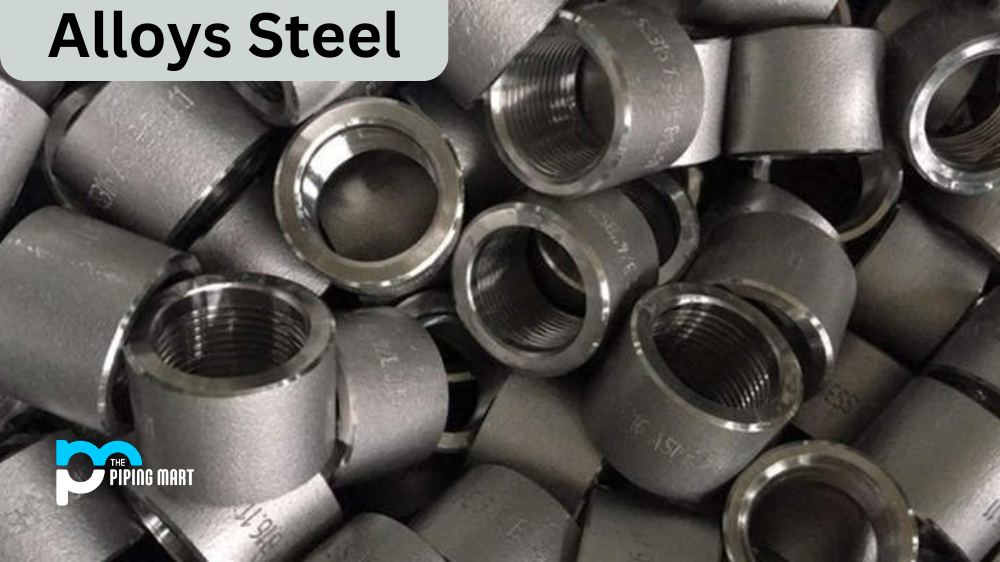Steel has been a fundamental component of modern infrastructure. It is used in everything from construction to manufacturing, but not all steel is created equal. Alloy steel is an innovative type that delivers high performance and better durability by adding other elements to the standard iron-carbon mix. With advances in alloy steel technology, manufacturers have created highly specialized materials with enhanced properties that meet the demands of specific industries.
In this blog post, we’ll discuss alloy steel manufacturing innovations and how they shape the future of multiple industries. We’ll also discuss the benefits of alloy steel and its applications. So, let’s get started.
What is Alloys Steel Forging?
Alloy Steel is a type of steel mixed with other elements to enhance its mechanical properties. Unlike traditional steel, which primarily consists of iron and carbon, alloy steel can also contain elements such as manganese, silicon, nickel, chromium, and molybdenum. This combination produces a stronger and more durable material suitable for various applications.
One of the main advantages of alloy steel is its increased strength. By adding different elements in varying quantities, it is possible to manipulate the properties of the steel to meet specific needs. For example, manganese can increase hardness, while nickel improves corrosion resistance. Such customization makes alloy steel ideal for use in industries where extreme toughness and strength are required.
Innovations in Alloy Steel Manufacturing
The Advantages of Alloy Steel:
Alloy steel is a specialized steel that is enhanced by adding other elements such as nickel, chromium, and molybdenum. The added elements improve steel’s strength, durability, and corrosion resistance. This makes it suitable for use in a wide range of industries. Some benefits of alloy steel include its ability to withstand high temperatures, increased durability, and reduced wear and tear, making it perfect for high-stress environments. These properties make alloy steel a preferred choice in industrial, construction, and manufacturing applications.
Applications of Alloy Steel:
Alloy steel has many applications, from aerospace to medical devices. Its versatility allows for its use in the automotive industry to create high-performance and durable vehicle parts such as collets, rods, and gears. In addition, it is widely used in construction for bridges and infrastructure projects where it can withstand harsh environmental conditions. Alloy steel is also used in power plants and petrochemical plants, where it is essential to have materials that can withstand extreme heat and pressure.
Innovations in Alloy Steel:
Thanks to technological advancements, alloy steel has evolved. One of the significant innovations in alloy steel manufacturing is the development of speciality alloy steel. These specialized alloys are developed to meet specific application requirements. They possess specific properties that no other alloy steel has while maintaining its structural integrity. These innovations have improved performance, efficiency, and lifetime durability in many industries. For example, aerospace industries use high-grade alloy steel to manufacture incredibly lightweight aircraft parts, reducing aircraft fuel consumption.
Improvements in Manufacturing Processes:
Manufacturers are investing in new manufacturing processes to meet the increasing demand for alloy steel. This has resulted in significant improvements in the production process, reducing the time and cost of manufacturing. Some companies are using software to accurately predict and control the properties of the steel, resulting in a higher quality product. Improving the manufacturing process has played a crucial role in reducing the environmental impact by reducing energy consumption and waste output during manufacturing.
Conclusion:
In conclusion, alloy steel has revolutionized multiple industries and shaped the future. The improvements in alloy steel technology have resulted in many benefits, such as greater durability, increased efficiency, and performance. With specialized alloy steel and improvements in the manufacturing process, the range of applications for alloy steel continues to expand. We can expect more innovation in the future as technology continues to progress. The future of alloy steel is promising, and it is a material that will help us forge a better future.
Sakshee is a talented blogger, with a particular focus on the Business and Metal Industry. She is passionate about sharing her insights on various metal products and helping professionals to make a better decisions.




